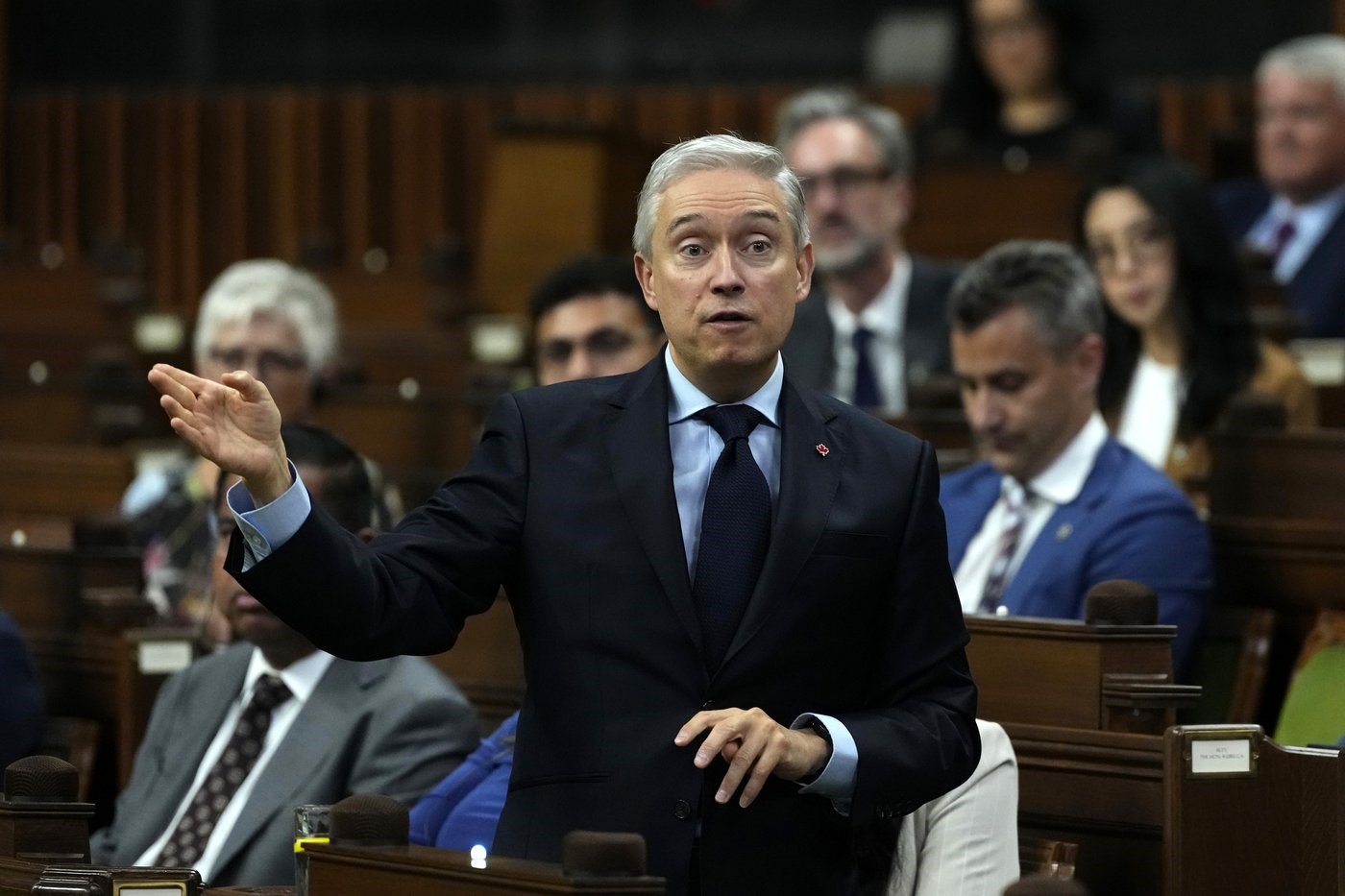
Minister of Finance and National Revenue Francois-Philippe Champagne rises during Question Period in the House of Commons on Parliament Hill in Ottawa on Friday, Sept. 26, 2025. THE CANADIAN PRESS/Justin Tang
Republished September 29, 2025 - 2:49 PM
Original Publication Date September 29, 2025 - 11:31 AM
OTTAWA — The federal finance committee has received 948 briefs as part of its consultation ahead of the federal budget, with many of them touching on artificial intelligence and digital policy issues.
Among the submissions — the most the committee has received in recent years — is a request from an organization representing hospitals for more than $1 billion in AI and health-care related funding.
HealthCareCAN said the government should invest $500 million into a national organization "dedicated to AI in health care," which would support expert testing and evaluation of AI technologies and provide a centralized procurement model.
A further $500 million would go to regional hubs, which would "develop and implement evidence-informed AI solutions to transform the health care system." An additional $100 million would be allocated for an AI and digital literacy strategy for health care providers, patients and policy makers.
Telecom giant Rogers is asking the government to include "digital infrastructure as part of energy corridors to ensure connectivity is included in major projects with a national interest."
The government has launched a new major projects office, and earlier this month announced the first projects it intends to approve under the major projects legislation it passed this spring. That bill was meant to streamline and speed up approvals for large infrastructure projects as the federal government looks to shore up Canada's economy against the tariff hits from the United States.
A Canadian tech sector group said the government lacks a cohesive digital sovereignty strategy, and is asking Ottawa to speed up building sovereign compute and cloud infrastructure.
The Council of Canadian Innovators said that should include "data centres that comply with Canadian security standards, sovereign identity management systems, and support for trusted domestic providers."
The group called for the government to develop a regulatory framework for sovereign digital infrastructure, as well as a digital non-alignment and industrial strategy, in which it maintains "interoperability while avoiding dependency on any single model or vendor."
IBM Canada said the government should invest in quantum, including in quantum computing infrastructure. It warned that "without greater access to the best available quantum compute infrastructure, Canada will fall behind other nations and 5 Eyes partners who are already heavily investing when it comes to applications critical to national defence and economic prosperity."
Airlines and airports asked AI Minister Evan Solomon to advance a digital ID and biometrics strategy.
The submission from the National Airlines Council of Canada and the Canadian Airports Council said the government should "establish a biometrics policy for all federal departments and agencies, supported by privacy protections and technology standards." It said that effort should involve "amending federal acts and statutes to enable the use of biometrics in the delivery of government services to Canadians."
In its own submission, Toronto Pearson Airport said the government should accelerate “the adoption of a common digital ID for both domestic and international travel,” a move it said would help reduce bottlenecks.
The Professional Institute of the Public Service of Canada asked the federal government to adopt AI responsibly.
The public sector union said there is a need for a new bill "that regulates all AI use and establishes an independent regulator that is to AI what the Bank of Canada is to monetary policy." It also called for AI to be incorporated into future collective agreements.
The Writers Guild of Canada asked the government to use copyright laws to support creative workers from threats posed by AI. It said "copyrighted works should not be used to train AI systems without the consent of, and credit and compensation to, copyright holders, nor should AI outputs be copyrightable."
But in its submission, Visa asked the government to stay away from regulation. It urged Ottawa to "avoid measures that would impose regulatory or statutory restrictions on the use of data relevant to threat and fraud detection in the payments sector, or the deployment of AI for the purposes of protecting the security of the payments system." It said AI is critical to its company's ability to offer a secure payment network.
Rumble, the Canadian-founded company that hosts U.S. President Donald Trump’s Truth Social platform, is citing free speech in pushing against online harms legislation. It said the government should "protect a free and open internet by avoiding legislation and regulation that will impede free speech and freedom of expression online."
Robot company Sanctuary AI asked the government for a $1 billion investment in physical AI, citing "Canada’s poor labour productivity growth projections."
"Building autonomous labour is now a global race and tied to Canada’s future sovereignty and economic prosperity," it said in its submission.
The government will unveil the long-awaited federal budget on Nov. 4., which will be the Liberals' first budget under Prime Minister Mark Carney.
This report by The Canadian Press was first published Sept. 29, 2025.
- With files from Kyle Duggan
News from © The Canadian Press, 2025